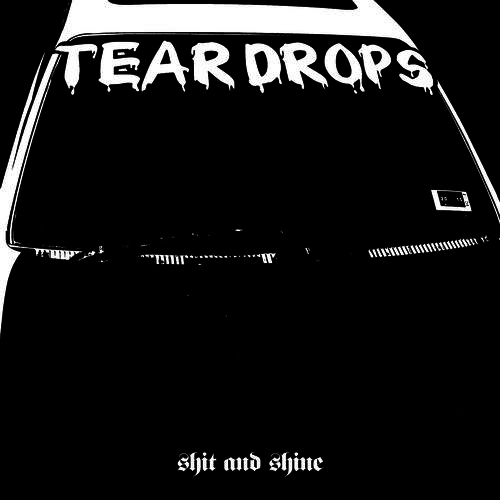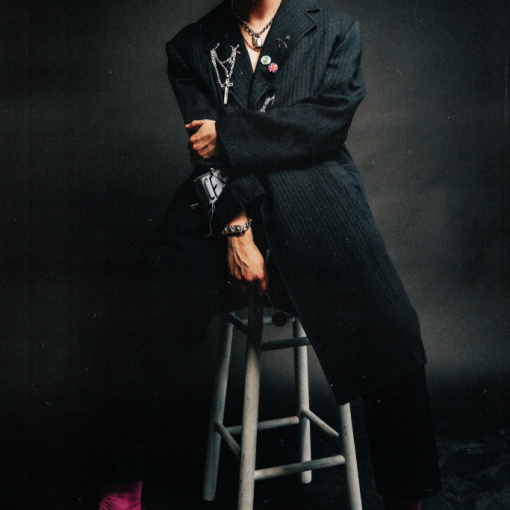Ui – The Iron Apple
Label: Southern Format: 12″,CDS
Named in respect of the vitality of the 103-year old owner of the cider house in Pennsylvania where Ui rehearsed for many years, The Iron Apple shows the band in further abstracted territory from their “post-Rock” roots. As ever, the combination of tightly-controlled energy in Clem Waldmann‘s drums, Sasha Frere-Jones‘s guitar and keyboards, and the beautifully-restriced bass rhythms (synthetic and string) courtesy of Wilbo Wright are constructed into something both other from alomost any other band and the group’s own highly Funky live performances.
Jazz-Funk would be too restrictive a label for this music – though it contains elements of that particular form. There’s a bit of Musique Concrete, some Electronica sample tricknology, and always the looming presence of floor-shaking bass to move the knees along of their own accord. This latter comes to the fore (though in less than glibly-predicable dimensions) in the lateral rhythms of “Golden Pietro”, a piece which emerges almost in reverse from obscurantist bass riffs into a moment or three of solid groove functionality, scraped away on the surface by some prickly guitar. When this develops into “Run Pietro”, it’s joined by impromptu CB radio interference on the bass amplifier which is quickly incorporated as a stochastic benefit to the track, fitting nicely into the vibrato of hissy amp reverb, some seemingly absent-minded banjo strums and the slack oscillations of loose-strung guitar picking.
-Antron S. Meister-
Ui – Live, November 1999
Ultra Red – La Enonomia Nueva (Operation Gatekeeper)
Label: FatCat Format: 3″ CDS
 Sourced from recordings at San Ysidro on the Mexican-American border on International Human Rights Day in December 2000, La Economia Nueva draws its “Operation Gatekeeper” subtitle from the paramilitary activities of the US Border Patrol (check) in regulating the movement of people between the USA and Mexico. The protests at San Ysidro form the focus of Ultra Red’s EP.
Sourced from recordings at San Ysidro on the Mexican-American border on International Human Rights Day in December 2000, La Economia Nueva draws its “Operation Gatekeeper” subtitle from the paramilitary activities of the US Border Patrol (check) in regulating the movement of people between the USA and Mexico. The protests at San Ysidro form the focus of Ultra Red’s EP.
“La Anti-antifona” mixes mashed-up soundbites on the issues around Gatekeeper with megaphone speeches and processed sounds and glitches to create a swirling ambience of the protests. Voices raised in anger contrast with the measured tones of argument, deliquescent trills and tape rewinds intrude on the software rendering of environment into impure sound as the background of the day’s events unfold. Tripping on unfolding spasms of microsound, the effect soon becomes unsettling, distanced from the source material by technology and transformed into abstraction. The rhythms are obscure and meandering, tracking from miniscule segue to mechanically-recovered virtual soundscape with an unsteady motion.
As a documentary record, La Economia Nueva works in a fragmentary, impressionistic manner trather than a linear exposition of actuality. “Movimiento ii” and “Movimiento iii” (which could equally refer to movements of people and economies within NAFTA and the global economy more generally) bring matters to a higher level of density. Magnifying, zooming in on the sounds of metaphorical wheels in motion, the representation seems to be of chaos ebbing and flowing under and around the regulatory instincts of governments and corporation; though in this case, the regulation is of people, not the flow of capital. A chorus of protest signifies the resurgent tide of opposition to inhumanity disguised as economic necessity,
-Antron S. Meister-
Ultra Red – Second Nature
Label: Mille Plateaux Format: CD
Ultra Red have a bit of a bone to pick with the local authorities in and around Griffith Park in Los Angeles. The Park, extending over 3,500 acres of Californian public space, has acheived a certain notoriety as a cruising ground and the object of much media and state attention for the activities of the local Gay (and straight) population. Through a series of recursive al fresco tape installations and performances, the anonymous collective explore the sounds and history of the park, blending the sounds of sex and sunny pastoral activity with more ominous surround-sound tape echoes and layers of emergent noise.
The techniques of Musique Concrète, field recordings and spoken word passages outline the thesis that the public authorities are essentially acting in a homophobic manner to crack down on the Gay community by stealth, each piece being documented and dated with the precision of a scientific experiment or sociological study. The accompanying maps, texts, quotations and histories combine with the CD as a complete package of outrage at the curtailment of individual and collective liberty. Whatever the politics involved, the recordings themselves tell a cut-up story of expansive, engaging detail, taking the listener on a cruise around an enhanced Griffith Park of the mind rather than in a strictly linear documentary format.
Gay men swap reports of police harrassment, branches crack underfoot and passing cars emit low rider throbs as source material for the soundtrack of an imagined space, with Ultra Red editing, processing and extruding the results into a condensed, impressionistic work of Electro-Acoustic interest in not only the end but the means of reconfigured sound. Second Nature is more than a single-issue polemic, being readable on several levels – “Auto Body (Cruise Control)” and “Pleasure Grounds (Curbed Behaviors)” find cascading rhythms and tonic complexity in the natural echoes of the spaces recorded as part of a “public occupation” via tape-recorder for example, and emerges as an abstracted Electro pulse of the Park itself – while cut and paste documentary interviews with both miffed (cross-cultural) cruisers and evasively polite police officers form a more instantly obvious expansion on the central themes of oppression finding its immediate origins in the electioneering on the part of the local government candidates.
The more rhythmic pieces which take the furthest leap from the natural sounds and spoken recordings into digital Electronica are the amplified (literal) bump and grind of “Lewd Conduct (Unnatural Microphonics)”, which makes a booming, echoing throb of the very sexual acts which the authorities disapprove so strongly, and two versions of “Curbed Behavior(s)”. The first makes a tumbling melange of glitch and rewind in the distanced sampler-hard disc-sequencer style, while the second (remixed by Terre Thaemlitz) draws an extended skein of buzzing, humming drones from the Park’s acoustic environs in more (literally) ambient closing track. Seething at an injustice of apparently manifest inequality, Second Nature makes its marks as a protest record which is several steps removed from the traditional method of full-throated, emotional songs and thunderous acoustic guitar, and is all the more effective for that.
-Antron S. Meister-
Ultraviolence – Blown Away 94-04
Label: Earache Format: 2CD
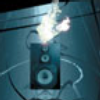 Back when Hardcore was banging away like a demented MDMA-fuelled jackrabbit, Ultraviolence brought in some seriously bad-trip moments at the extremeties of the interface between Industrial and Techno, and then proceeded to make matters worse for their listeners over the next ten years. Don’t forget that Ultraviolence played on bills not just with acts as varied as Moby and Cubanate, and even Punk ranters The Exploited too. Blown Away is either a record of their best attempts to fuck with the dancefloor, or a greatest hits set; does it matter which?
Back when Hardcore was banging away like a demented MDMA-fuelled jackrabbit, Ultraviolence brought in some seriously bad-trip moments at the extremeties of the interface between Industrial and Techno, and then proceeded to make matters worse for their listeners over the next ten years. Don’t forget that Ultraviolence played on bills not just with acts as varied as Moby and Cubanate, and even Punk ranters The Exploited too. Blown Away is either a record of their best attempts to fuck with the dancefloor, or a greatest hits set; does it matter which?
So opening with “Hardcore Motherfucker” is a good move – harsh naildriver beats, a plummy-vocalled female voice intoning the title, and that’s it – an over the top body and ear bashing, which still sounds pretty good if you’re on severe levels of hallucinogens no doubt; however, there’s a feeling throughout that sometimes nothing dates like Hardcore, but given that it’s probably about time for a second (or is it third?) revival, there’ll be listeners aplenty for this stuff – and if they’re mashed up enough, they won’t mind. Those not under the influence enough to have longer than nano-second brain refresh rate can revel in digga-digga-digga-ugh rhythms, shivery E-tickling chords, some curiously flattened imprecations to love and hate (a favourite has to be the deadpan rap of “North Korea Goes Bang!”) and several unfortunate decisions to include wailing diva vocals. Even is said shrieks are occasionally done with a wry sense of humour, there’s still no real need for them in dance music; but Ultraviolence do alright with their blending of strings and other sampled orchestrations into the mix, and the thundering Hardcore Techno version of Black Sabbath‘s “Paranoid” is worth the entry price alone.
As a bonus there’s also a second CD of remixes of and by UV, the best here being the Ultraviolence mixes of Laibach‘s gloriously bombastic cover of “War” (even if that diva is wailing a little too much again) and Mark Stewart‘s electric Dub track “Consumed” remade afresh as a smear of harsh smacking kickdrums and hungry timestretching, and the furiosly dark speed rush through Hellsau‘s “Blissed Turbo” in a welter of distended bass and the hardest of Hardcore phasing and the stripped down and re-assembled Industrial vitriol of Leech Woman‘s “TK421” – both tracks which cry out for a damp basement full of smoke, salad lights and zombified masses wigging out over a very long weekend. DJ Fistfuck‘s spasmolytically cheesy rendering of “Psycho Drama” and the thunderously overblown breakbeat’n’chug Hellsau applies in return to “Strangled” make up the best of the remixes of Ultraviolence themselves.
Blown Away makes for a neat (re)introduction to their oeuvre for anyone too mashed to remember it the first time round in the warehouse, or for any striplings curious about what their parental unit(s) did in the last days of the Rave era (whenever they might be or have been).
-Freq1C-
Ulver – Perdition City (Music To An Interior Film)
Label: Jester Format: CD
 Ulver started their career as frost-bitten Black Metal band from Norway. In 1998 they released a musical adaptation of William Blake‘s The Marriage of Heaven and Hellthat shocked their fanbase and delighted the critics. So what about Perdition City? The first thing that comes to mind is Trip-Hop. There are plenty of Funky midpaced beats and pseudo-Soulful vocals drift in and out of the mix. This is all weaved together with lush electronic soundscapes. Sounds nice? It is. It is too nice. There is a dark undercurrent to the material and it isn’t exactly Massive Attack. But it just doesn’t grab you by the balls, if you know what I mean.
Ulver started their career as frost-bitten Black Metal band from Norway. In 1998 they released a musical adaptation of William Blake‘s The Marriage of Heaven and Hellthat shocked their fanbase and delighted the critics. So what about Perdition City? The first thing that comes to mind is Trip-Hop. There are plenty of Funky midpaced beats and pseudo-Soulful vocals drift in and out of the mix. This is all weaved together with lush electronic soundscapes. Sounds nice? It is. It is too nice. There is a dark undercurrent to the material and it isn’t exactly Massive Attack. But it just doesn’t grab you by the balls, if you know what I mean.
It is basicly good work, but it really doesn’t stand out. Its just sort of there: competent, visual, moody and occasionally interesting. I would point out that Ulver do seem to be somewhat ahead of the Metal pack, based on The Marriage of Heaven and Hell. It’s just that this material is not enough; they need to try harder. But I say, keep your eyes on Ulver in the future. We might all be suprised…
-Dag Luterek-
Umek – Telentol
Label: Novamute Format: 12″
Techno Techno Techno? Yep, straight up (but with a fair bit of messing) is how Umek presents “Telentol”, the rubbery beats setting up the propulson system while all manner of ghostly machinery writhes around at the periphery, making stabs and swoops across the spectrum to tickle at the edge of paranoia before fading and recurring to eerie (if overlong) effect. “Ganolam” introduces itself in the guise of Avant Electronickery before smashing away the cobwebs and settling in for a solid floorbashing. Close-set beats stutter spasmodically and with little release, though the bright stabs of post-Front 242 keyboard melody both shock and amuse while backpedalling a few times on the rhythmic onslaught until it kicks back in for some serious reverberation.
There’s an Electro flavour to the windy rushes which preface the ratcheted-up beats of “Arondon”, sweeping all before them on yet more layers of rhythm. Sprinkle in some Dubby echo traces and the dynamics of speed and bass make for an urgent mix of amphetamine concentration and chronic distraction as one urge slides over the other in contradictory directions. There’s a similar feel to “Entan” at first, but here the bass soon rules, calling out a metronomic imperative to an industrial clangour of metallic snares held in repetetive tension until the sub-orchestral release of Techno bombast sets the stage for some reined-in beats with a somewhat sadistic air to the persisent denial of a complete surrender to the groove.
-Freq1C-
Obeng Ungu And Jalan Buntu With Group Uang Wayang Of Palembang – 1951: Sumatran Ladies Wearing Hats As Outlawed By Government
Label: Hot Air Format: 3″ CD
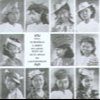 Originally released in 1982 on the Indonesian Kesenian label on cassette only, Sumatran Ladies… apparently in respect of the women of Sumatra who suffered under harsh pain of the death penalty for wearing Western headgear in the Fifities. Or so say the sleeve notes to this Hot Air re-issue, but seeing as how Matt Wand of Stock, Hausen & Walkman is involved, let’s just take them at their word and proceed.
Originally released in 1982 on the Indonesian Kesenian label on cassette only, Sumatran Ladies… apparently in respect of the women of Sumatra who suffered under harsh pain of the death penalty for wearing Western headgear in the Fifities. Or so say the sleeve notes to this Hot Air re-issue, but seeing as how Matt Wand of Stock, Hausen & Walkman is involved, let’s just take them at their word and proceed.
The12 tracks posess a weird sense of Gamelan gone a little crazy, blending in and out of Kraftwerk motifs to the preset tunes on consumer electronic devices, wrapped up in a Sumatran sensibilty which allows as much for the gongs and metallophone as the Hammond organ and the Rolan 808 (sic). The cheery ethnodelic ditties waft fragrantly in a hybrid melding of avant-kitschery fine-tuned to a global perspective, making for a curiousity which soon drops its apparent novelty status in favour of a groove-driven cross-cultural funk to complement the more “serious” workings of 23 Skidoo. Add in the more esoteric melodies which traipse merrily around sampled environmental sounds and spot electronics to their own fascinatedly elliptical rhythms, and what results is a enveloping selection of head-scratching, ear-bending and genuinely out there electronica exotica; frog choruses included.
-Freq1C-
Uniform – Not A Word
Label: Ad Noiseam Format: CD
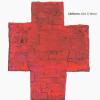 Eschewing the brittle anger and noise of his 2nd Gen identity, Wajid Yaseen‘s outing in Uniform draws closer, more personally-directed patterns in the soundscapes of Not A Word, rolling on a criss-crossed latticework of intricate delay effects, junk-noise rhythms and buried texts. Pulsar transmissions intersect with ectoplasmic timestretches and the creaking motion, while dragging forwards, is linear only though the contraints of time; discordance and distensions work on melodic fragments and trundling sweeps of noise alike. Shot through with a complex sense of unfolding dramas played out through frosted panes, Not A Word tempts and tugs at half-described scenes and overheard or expropriated room-sized remnants of Industrial Dub and HipHop, filtered through dreamlike Concret constructions of thoroughly eviscerated sound.
Eschewing the brittle anger and noise of his 2nd Gen identity, Wajid Yaseen‘s outing in Uniform draws closer, more personally-directed patterns in the soundscapes of Not A Word, rolling on a criss-crossed latticework of intricate delay effects, junk-noise rhythms and buried texts. Pulsar transmissions intersect with ectoplasmic timestretches and the creaking motion, while dragging forwards, is linear only though the contraints of time; discordance and distensions work on melodic fragments and trundling sweeps of noise alike. Shot through with a complex sense of unfolding dramas played out through frosted panes, Not A Word tempts and tugs at half-described scenes and overheard or expropriated room-sized remnants of Industrial Dub and HipHop, filtered through dreamlike Concret constructions of thoroughly eviscerated sound.
The lazy classification is uneasy listening – and while a partly fair description, Not A Word is by no means as spookily Gothic or dismal as that tag might indicate. Unsettling and even disturbing, yes, but often lit with a purer sense of tone and electro-acoustic sculpture as the reverberating rise and whirr of “Say It As You See It” or the steam-powered drone and emergent beats of “Average Everything” demonstrate to metronomic curls and brightly-drawn chimes to sense-elevating effect. Indistinct voices prompt tweaks of the volume controls to pick out the words; their address remains unclear, declamatory yet so immersed in texture as to become part of the time-dilating stasis.
There are only slightly clearer messages from Alice Kemp, flickering with effected spirit lustre across the drones of “Jekyll And Hyde Situations”, in the lurch and bass cacophony of “Wasted Unstraight”, which wobbles suitably in hesitant directions, and looped down the multi-channel phone line to the querulous sludge beats of “Rock N Roll Deaths Are An Emulation”. Still, the repeated hissed “Kill” of “The Trees Will Kneel” are best left for listening to by the clinically paranoid when the medication is working properly. When the album does break through into clearer moments of rhythm and groove on “You Idiot, Thet’s A Girl’s Bike” or the closing “Torn Hands”, they quiver and writhe with the urgent speedy grimace of someone who has taken a lysergic bath recently.
-Linus Tossio-
Unitus – Cross Contamination
Label: DTrash Format: CD
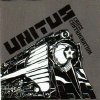 Third identity for Daniel Ross following his earlier incarnations as Cylinderhed and Black H3ll1k0pt3r, Cross Contamination gives him plenty of scope to get his digital noise purgative out of system as Unitus. As much Grindcore churn as Industrial dance material, “Obmutecre” opens the album with a stage-setting thob of speedy breakbeats and layers of grinding feedback noise, uncoiling and twisting around its linear framework with a singular intent. Relentless as the initial blast may be, when the screaming jagged tears and furious breakbeats of “Recombinant” emerge, the mood becomes one of reined-in tension waiting to be unleashed, which eventually kicks in with a crunchy beat snarled up in a sludge of dirty noise spattered with phased rhythms and dissociative sample interrupts.
Third identity for Daniel Ross following his earlier incarnations as Cylinderhed and Black H3ll1k0pt3r, Cross Contamination gives him plenty of scope to get his digital noise purgative out of system as Unitus. As much Grindcore churn as Industrial dance material, “Obmutecre” opens the album with a stage-setting thob of speedy breakbeats and layers of grinding feedback noise, uncoiling and twisting around its linear framework with a singular intent. Relentless as the initial blast may be, when the screaming jagged tears and furious breakbeats of “Recombinant” emerge, the mood becomes one of reined-in tension waiting to be unleashed, which eventually kicks in with a crunchy beat snarled up in a sludge of dirty noise spattered with phased rhythms and dissociative sample interrupts.
Something of an endurance test, thanks to the lengthy tracks which let rhythms and beats build in their own good time, Cross Contamination offers a cathartic venting of cacophony and repetition. “Metal To Ashes” expresses pent up ire in reverberating cross rhythms built from slabs of noise, the skittering trails of atrophied drum loops and suspended gobbets of guitar drone and chime, heralding a descent into distortion, delay and evenual noisy collapse. The drum machine pounding, metal-bashing percussion and gunshot spasms of “Descender” nail home the grind in a brutal, repetitive tatoo which shudders under the weight of scarred sounds, while “Cable Winder” lurches to an Industrial Doom throb to make Justin Broadrick proud – all it needs are the pained shouts to summon up the ghost of Godflesh before they got a real drummer and found their True Metal soul. Lastly, or so it appears, “Supercollider” cranks up the wall of nasty sound before letting rip into a comparitively upbeat slice of frazzled fuzz with an Electro feel to its emergent pounding beats.
With all the frustrated passion of a marathon session of headbanging straight into a brick wall until bloodied and battered, Cross Contamination is an unsettling album, raging with anger and not one to be listened to lightly. Leaving the disc running after the sixth track reveals a delayed coda at track 23, bursting into bleepy, squirming life with a motorized beat and a keyboard melody thoroughly drenched with effects. This offers a neat offset to the pessimistic main body of the album with something approaching noisy euphoria, though the bowel-rumbling conclusion of bass churns and vicious sparks soon brings matter back to a final dissolute winding down of what is also the best track on the album.
-Linus Tossio-
The Urchin – Fragile Songs In Lukewarm Dreams
Label: Broken Rekids Format: CD
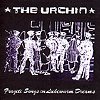 Basically, all you need to know about this band is that they’re a fast-playin’ Punk Rock band, kind of along the lines of what the Descendants were doing musically almost 20 years ago except with a much more tragic-sounding bent. I guess you call that stuff “emo” now – God knows I don’t know. From the press kit, it appears that the band is from Japan, and the titles of the songs are awesome and perhaps the best part of the songs: “Fling a Bottle to the Cold Wall,” “Field of Darkness,” “21st Century Naked King,” and “Another Three Cheers to Japanese Capitalistic Regulation Troops” are my favorite titles out of the 14 songs listed here, although, like most Punk Rock, I can’t tell what the lyrics of the songs are and exactly how they fit these gorgeous titles.
Basically, all you need to know about this band is that they’re a fast-playin’ Punk Rock band, kind of along the lines of what the Descendants were doing musically almost 20 years ago except with a much more tragic-sounding bent. I guess you call that stuff “emo” now – God knows I don’t know. From the press kit, it appears that the band is from Japan, and the titles of the songs are awesome and perhaps the best part of the songs: “Fling a Bottle to the Cold Wall,” “Field of Darkness,” “21st Century Naked King,” and “Another Three Cheers to Japanese Capitalistic Regulation Troops” are my favorite titles out of the 14 songs listed here, although, like most Punk Rock, I can’t tell what the lyrics of the songs are and exactly how they fit these gorgeous titles.
-Holly Day-
USSA – The Spoils
Label: Fuzz Format: CD
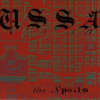 USSA is the new project by Paul Barker, formerly of industrial juggernaut Ministry (the band for whom the phrase “Slayer played by giant robots” was invented) and Duane Denison, formerly of Jesus Lizard (the band for whom the phrase “blimey, that David Yow fella’s gonna have someone’s eye out in a minute” was invented). So it could conceivably have gone one of two ways- sonic bulldozer, or spiky punching-you-in-the-face shoutiness. Or somewhere in between.
USSA is the new project by Paul Barker, formerly of industrial juggernaut Ministry (the band for whom the phrase “Slayer played by giant robots” was invented) and Duane Denison, formerly of Jesus Lizard (the band for whom the phrase “blimey, that David Yow fella’s gonna have someone’s eye out in a minute” was invented). So it could conceivably have gone one of two ways- sonic bulldozer, or spiky punching-you-in-the-face shoutiness. Or somewhere in between.
But it didn’t. What The Spoils is most reminiscent of, to these ears at least, is Killing Joke. Which seems a bit weird at first, until you consider the evolution of alternative guitar music through the eighties and nineties. Killing Joke were arguable one of the largest influences on nineties industrial music, leading right up to Ministry’s final incarnation as, well, Slayer played by giant robots, with everyone from Front 242 to Godflesh‘s Justin Broadrick (who was once in a band named after a KJ track) owing them a fairly substantial debt. And they were also a massive influence on the grunge movement, with that whole legal malarkey in which Nirvana claimed not to have noticed that “Come As You Are” was essentially “Eighties” played twice as fast somehow coming full circle with ex-Nirvana drummer Dave Grohl joining Killing Joke for their triumphant comeback… they were all over the place. In more ways than one.
Grunge itself is another useful reference point for USSA, most notably on “Blue Light”, which has a throbbing, menacing verse built around one of those relentless, brain-pounding basslines that Barker put to such effective use in his time with Ministry, then bursts into a chorus which wouldn’t have sounded amiss on something by, oh, I don’t know, Soundgarden or Alice in Chains, if they’d been the sort of bands who’d traded on relentless, brain-pounding basslines. The closest Ministry frame of reference, I guess, is The Mind Is A Terrible Thing To Taste, when they were still wiry enough to not quite be metal, when the bass was still what was framing the tracks. At times USSA can sound a little subdued, if what you’re expecting is Ministry or the Jesus Lizard. But then if what you’re expecting is Ministry or the Jesus Lizard, you should probably be listening to one of those two bands rather than USSA, shouldn’t you? Denison fires off angular, almost jazz-flavoured riffs left, right and centre, and once you let the new sound get into your head you find it scraping round and round the inside of your skull while vocalist Gary Call moans, whines and screams his way out, one minute Rozz Williams, the next Maynard James Keenan (actually, at points, like parts of “Summer Endless Summe”r, you could almost be listening to early Tool). It’s all very disorienting.
I guess the best way to describe this album is to think of it as being a cross between eighties post-punk and nineties hardcore, only both recorded with the benefit of hindsight afforded by it now being, well, the twenty-first century. If you see what I mean. And while that may sound awfully pompous, there’s a kind of rock swagger to the whole thing which stops it ever quite descending into dour navel-gazing, and for some reason reminds me of Prong. Only it doesn’t sound like them either.
-Deuteronemu (a quiet bit then a loud bit) 90210-
